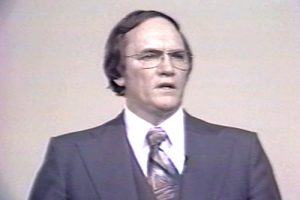301-304: Preparing for Collective Bargaining
Program 301: Basic Orientation to Collective Bargaining
Highlights:
When negotiation breaks down was the impasse avoidable? Were the best positions forwarded?
Power conserved is power maintained, power expended is power dissipated. The strike or lock-out is a test of economics. Power to endure a stoppage elicits respect from the other side.
The Test of Power should involve irreconcilable differences with survival rights at issue.
Be prepared to endure the rigors of the Test of Power.
Keep attention attuned to whether the operation can continue without the bargaining unit.
Program 302: Considerations Prefatory to Bargaining
Highlights:
The desire is to change the position of the other side to one’s own position.
An endurable solution is achieved through compromise.
Initiatives are the keys that unlock favorable compromise.
Tentative understandings ordinarily will remain.
The chief negotiator should be the principal spokesman.
The chief negotiator should be cloaked with an image of limited authority.
The kinetic force to compromise is the integrity, competency and credibility of the chief negotiator.
Program 303: Overview of the Labor Agreement
Highlights:
Agreements are frequently arrived at under high pressure.
It is often difficult to remove bad language.
Watch for errors made in haste; “Weasel words” such as “may” and “normally” are imprecise and invite later testing.
Any provision in the contract can become a “bone of contention”.
A careful review of each of the major clauses should be undertaken.
Program 304: Preparing for Collective Bargaining
Highlights:
Preparation begins when the prior contract is negotiated.
The language should be alertly administered.
Consider past practice and disciplinary procedure.
Accumulate information on an on-going basis.
Watch COLA progressions and industry settlements.
Record costs of production, prices and total labor costs, the seniority list, and job descriptions.
Preparation includes the quid pro quo for your proposals.
| Format | Four lectures. |
|---|---|
| Length | 50 Minutes |
| Presenters | Robert Johnson, former President of Michigan Council 25, AFSCME |


